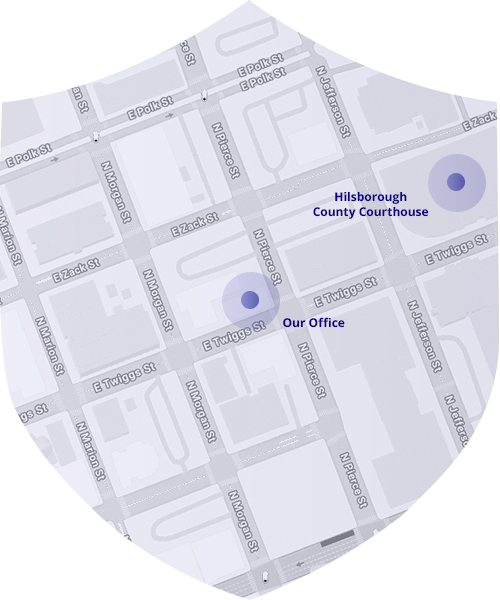- Free Consultation 24/7: (813) 727-7159 Tap Here To Call Us
Social Media Evidence in Tampa Criminal Cases

How Digital Evidence Can Make or Break Your Defense
Social media can decide the outcome of a criminal case. Posts, comments, messages, photos, and location data now appear in Tampa courtrooms every day. Prosecutors use this digital evidence to build timelines, attack credibility, and argue guilt. However, social media also helps the defense. When used correctly, it can expose lies, reveal hidden motives, and lead to dismissed charges.
| How Is Social Media Used in Criminal Cases? Social media evidence in criminal cases includes posts, comments, direct messages, photos, videos, tags, check-ins, and geolocation data. Prosecutors use this evidence to establish timelines, prove intent, place defendants at crime scenes, and impeach witness credibility. Defense attorneys use the same evidence to expose false accusations, reveal witness motives, and create reasonable doubt. |
At The Brancato Law Firm, P.A., I investigate social media in every case. I understand how to obtain digital evidence legally, challenge it in court, and use it to protect my clients. This technical knowledge has led to dismissed charges and exposed juror misconduct in Tampa courtrooms.
Real Tampa Case: Social Media That Cleared My Client
The State charged my client with unlawful sexual contact with a minor. The accusations looked serious. However, I investigated the alleged victim’s social media and found posts that directly contradicted the story she told police.
The State Attorney’s Office dismissed the charges completely. Had I not explored social media in that case, my client would likely be a registered sex offender today. Digital evidence saved his life.
Real Tampa Case: Juror Misconduct Online
In a high-profile trial, I caught a juror posting online about the active case—violating the judge’s explicit instructions not to discuss proceedings. That post almost derailed the trial. We addressed the misconduct in court, creating appellate exposure and threatening the verdict’s integrity.
Without active monitoring, that misconduct would have gone unnoticed. This case made headlines and demonstrates why social media awareness matters at every stage of criminal defense.
The Stored Communications Act: How Police Obtain Your Data
Federal law controls how law enforcement obtains social media content. The Stored Communications Act (18 U.S.C. § 2703) governs electronic communications stored by third-party providers like Meta, X, Snapchat, and TikTok.
| Content Age | Legal Requirement |
| Less than 180 days old | Search warrant with probable cause required |
| More than 180 days old | Court order under § 2703(d) may suffice |
This timing matters. Early preservation is critical. Social media companies have dedicated law enforcement portals and compliance teams. They receive requests, preserve data, and deliver records quickly—often before defendants even know they are under investigation.
Digital Forensics Goes Beyond Social Media
Social media posts lead investigators to devices. Police seize phones, computers, tablets, and external drives. Using forensic tools like Cellebrite, law enforcement can extract:
| Data Type | How It’s Used |
| Messages and DMs | Prove communication, intent, planning |
| Deleted files | Recover “destroyed” evidence |
| Photos and videos | Visual evidence, metadata analysis |
| Location data and GPS | Place defendant at or away from scene |
| Call logs and timestamps | Build timeline of events |
| App data and accounts | Link defendant to platforms and activity |
Without a knowledgeable defense team, the State’s interpretation of this data becomes the entire story.
How Defense Attorneys Use Social Media
Social media is not just a tool for prosecutors. A skilled defense attorney uses digital evidence to:
- Expose inconsistencies in witness statements
- Reveal hidden motives and biases
- Trace rumors to their origin
- Establish alibis through location data
- Challenge the State’s timeline
- Identify coaching or collusion among accusers
I also work with defense-side forensic experts who can re-run extractions, expose flawed timestamps, recover content law enforcement missed, and identify unauthorized searches. A small inconsistency can win reasonable doubt.
| If You Are Under Investigation: Protect Your Social Media Stop posting immediately. Do not delete content—it could appear as tampering and police can often recover it anyway. Tighten privacy settings. Tell friends not to post about you. Never message witnesses about the case. Everything can be screenshotted. |
Florida Evidence Rules for Social Media
Social media evidence must be authenticated before admission in Florida courts. Under Florida Statute 90.901, the proponent must establish that the evidence is what it claims to be. For social media, this typically requires showing the post actually came from the claimed account and was created by the alleged author.
Authentication methods include testimony from someone who observed the post being created, distinctive characteristics of the account (writing style, personal details, profile photos), metadata and IP address records from the platform, and testimony from the account holder. I challenge authentication when prosecutors take shortcuts—because improperly authenticated evidence should not reach the jury.
Frequently Asked Questions
Yes. Prosecutors can use posts, comments, tags, photos, direct messages, and location data to support their theory of guilt—if properly authenticated under Florida evidence rules.
No. Deleting posts may look like tampering or destruction of evidence. Police can often recover deleted content through forensic tools or requests to the platform. Do not delete anything once you know you are under investigation.
Absolutely. Social media can expose false claims, reveal witness motives, establish alibis, and create reasonable doubt. I investigate social media in every case.
Very fast. Social media companies have dedicated law enforcement response teams and compliance portals. Requests are often processed within days, sometimes hours in emergencies.
Juror misconduct on social media can create mistrial issues, reversals, or appellate arguments. I actively monitor for this during trial—and have caught it in Tampa courtrooms.
Often, yes. Digital evidence is technical and complex. A defense forensic expert can re-run extractions, expose flawed analysis, and find evidence law enforcement ignored or misinterpreted.
Facing Charges Involving Digital Evidence?
If you face criminal charges in Tampa, Hillsborough, Pinellas, or Pasco County, you need an attorney who understands digital evidence. Social media can sink a case—or save one. Your freedom depends on whether your attorney knows the difference.
Call (813) 727-7159 for a Confidential Consultation
620 E. Twiggs Street, Suite 205, Tampa, FL 33602
Serving Hillsborough, Pinellas, and Pasco Counties.

















